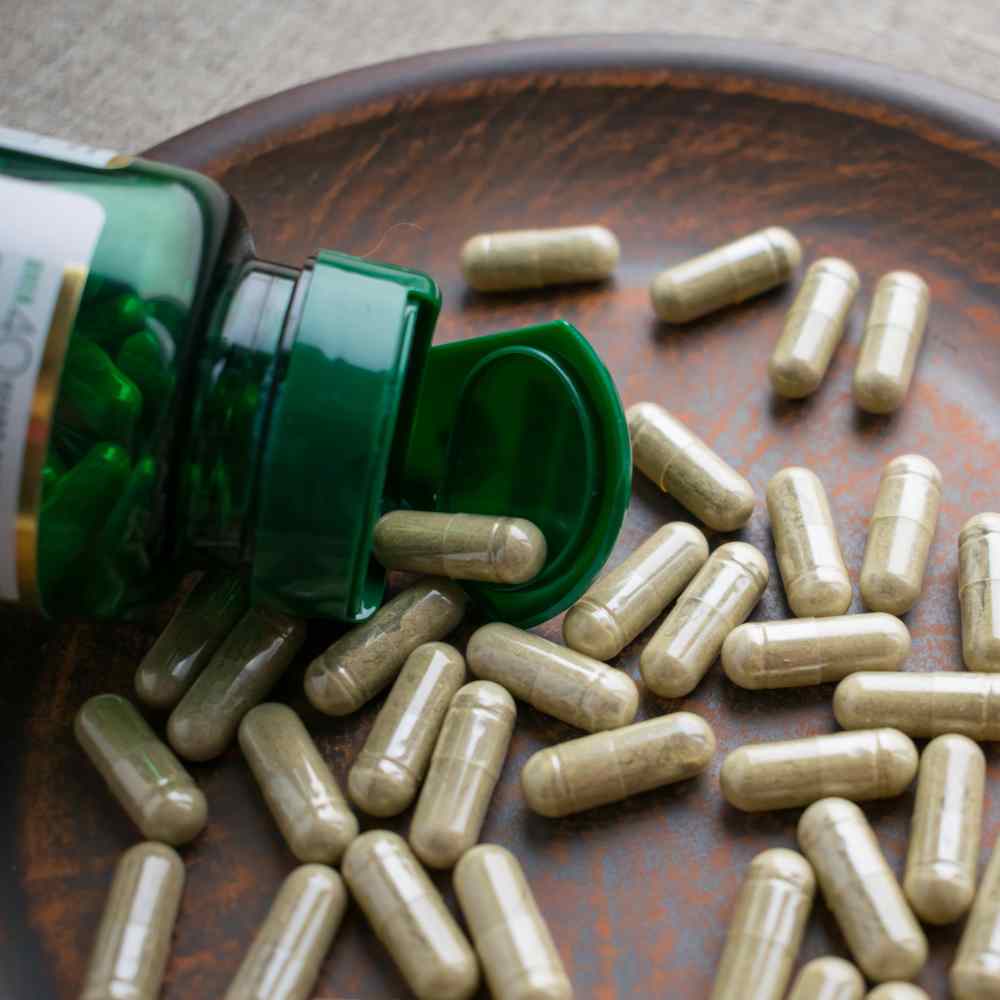
Does Biotin Cause Acne? Exploring the Myth & the Facts!
Have you been struggling with persistent acne for weeks, months, or even years?! Are you looking for the trigger that is causing your breakouts. If so, you are definitely not alone!
Recently there's been a rumor that biotin could be responsible for breakouts. Biotin, also known as vitamin B7, is a popular supplement that people take for hair, skin, and nail health. Some also take it to prevent hair loss.
So, is there any truth to the claim that it can cause or worsen acne? In this juicy post, we'll dive into the topic of taking this supplement for a biotin deficiency and its possible effects on acne.
Let's bust some myths and explore what science has actually proven about how biotin affects our bodies.
So, let's separate the myths from the facts and uncover what you need to know about biotin and its potential impact on acne.
What is Biotin?
If you've ever heard of biotin, you may be familiar with its incredible potential to help maintain healthy, shiny hair and strong nails. But B vitamin's benefits don't end there!
Biotin (also known as Vitamin H or B7) is a water-soluble vitamin found in many foods that helps the body convert food into energy for use in bodily functions. It’s naturally present at low levels in many fruits, vegetables, eggs, dairy products, and nuts - making it relatively easy to get adequate amounts from your diet.
But what does a biotin supplement actually do? Well basically it helps regulate the metabolism of proteins and carbs by aiding enzymes involved in the metabolic process give them an extra boost of energy. On top of this crucial role biotin plays within our bodies, it can also have some impressive external benefits too!
For one thing, because biotin helps support skin health by building keratin which strengthens both hair and nails - meaning improving their growth rate and overall appearance.
This is why many people take biotin supplements to try and achieve shinier hair or longer nails more quickly than they would otherwise!
Additionally, studies show that regular consumption of adequate amounts of biotin can lead to improvements in skin complexion too; reducing redness caused by inflammation as well as minimizing wrinkles due to its anti-aging properties.
Overall then we see that although reasonably small amounts are needed on a daily basis to prevent any deficiency-related issues occurring - taking enough biotin regularly offers some serious physical health perks including enhanced metabolism efficiency alongside boosted nail strength & glossy haircare. Pretty impressive stuff indeed!
What is Acne?
Before we dive into the topic of biotin and acne, it's important to understand the fundamentals of acne.
Acne is a skin condition that can include anything from pimples to blackheads and whiteheads. It occurs when hair follicles become clogged with oil, dead skin cells, and bacteria.
Hormonal changes, excess oil production, and inflammation are key factors contributing to acne development.

Biotin & Acne Rumors
The association between biotin and acne primarily stems from anecdotal reports and personal experiences.
Some individuals have claimed that taking biotin supplements resulted in an increase in acne breakouts. However, it's important to examine the scientific evidence to determine the validity of these claims. Or else they are just that...claims.
Scientific Evidence: Biotin 7 Acne
Limited scientific studies have directly investigated the relationship between taking this oral supplement and acne.
The available research suggests that biotin itself is unlikely to be a direct cause of acne. In fact, biotin is an essential vitamin that plays a crucial role in maintaining healthy skin, hair, and nails.
However, there is one aspect that may contribute to the biotin-acne association: dosage. Biotin supplements are often taken at high doses, typically exceeding the recommended daily intake.
These high doses can potentially disrupt the balance of other B-vitamins in the body, leading to imbalances that may indirectly affect the skin.
Biotin & Breakouts: The Mechanism
While biotin does not directly cause acne, it's important to understand the underlying mechanism that may contribute to breakouts.
Biotin is involved in supporting healthy cell growth, which includes the production of keratin, a protein that makes up the structure of the skin, hair, and nails.
High doses of biotin can affect the levels of other B-vitamins, particularly vitamin B5 (pantothenic acid). Vitamin B5 plays a crucial role in maintaining balanced oil production in the skin.
Disrupting this balance by excessive biotin intake may potentially lead to an increase in sebum production, which could contribute to acne development.
Finding Balance: Biotin and Acne Management
If you are considering taking biotin supplements but are concerned about potential breakouts, here are a few tips to help maintain balance:
1. Consult a Healthcare Professional: Before starting any supplement regimen, it's important to consult with a healthcare professional, such as a dermatologist or nutritionist. They can provide personalized guidance based on your specific needs and health considerations.
2. Opt for Recommended Dosages: Stick to the recommended daily dosage of biotin as indicated by health authorities. Avoid mega-doses or excessive amounts that may disrupt the balance of other vitamins.
3. Support Overall Skin Health: Remember that good skincare practices play a vital role in managing acne. Follow a consistent skincare routine that includes gentle cleansing, exfoliation, moisturization, and protection from the sun.
Focus on using non-comedogenic products suitable for your skin type. If you do break out, try a good spot treatment product to treat acne that contains benzoyl peroxide or salicylic acid.
4. Balanced Diet: Instead of relying solely on dietary supplements, aim to maintain a balanced diet rich in natural sources of biotin, such as eggs, nuts, seeds, fish, and whole grains. This way, you can obtain biotin in a more natural form while also benefiting from other essential nutrients.
5. Consider Alternative Options: If you are concerned about potential acne associated with biotin supplementation, explore other alternatives to support hair, skin, and nail health. Or eat a whole foods diet including plenty of leafy greens and vegetables.

The Truth About Biotin & Acne
While anecdotal reports may suggest a connection between biotin and acne breakouts, the scientific evidence is limited.
Biotin itself is unlikely to directly cause acne. However, high doses of biotin may disrupt the balance of other B-vitamins, potentially impacting the skin.
To ensure balance and overall skin health, it's essential to consult with a healthcare professional, adhere to recommended dosages, and prioritize a well-rounded approach to skincare.
Focus on maintaining a balanced diet, adopting a consistent skincare routine, and considering alternative options if concerned about potential acne breakouts.
Remember, each individual's experience may vary, and what works for one person may not work for another. Listen to your body, pay attention to any changes, and consult with a healthcare professional for personalized advice.
With the right approach, you can support your skin health while enjoying the potential benefits of biotin supplementation.

















